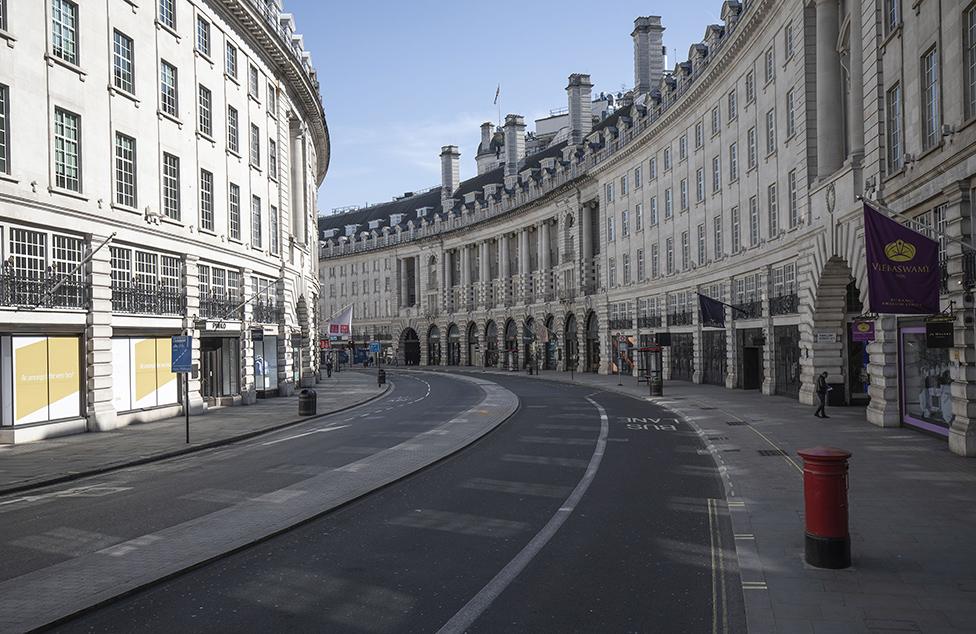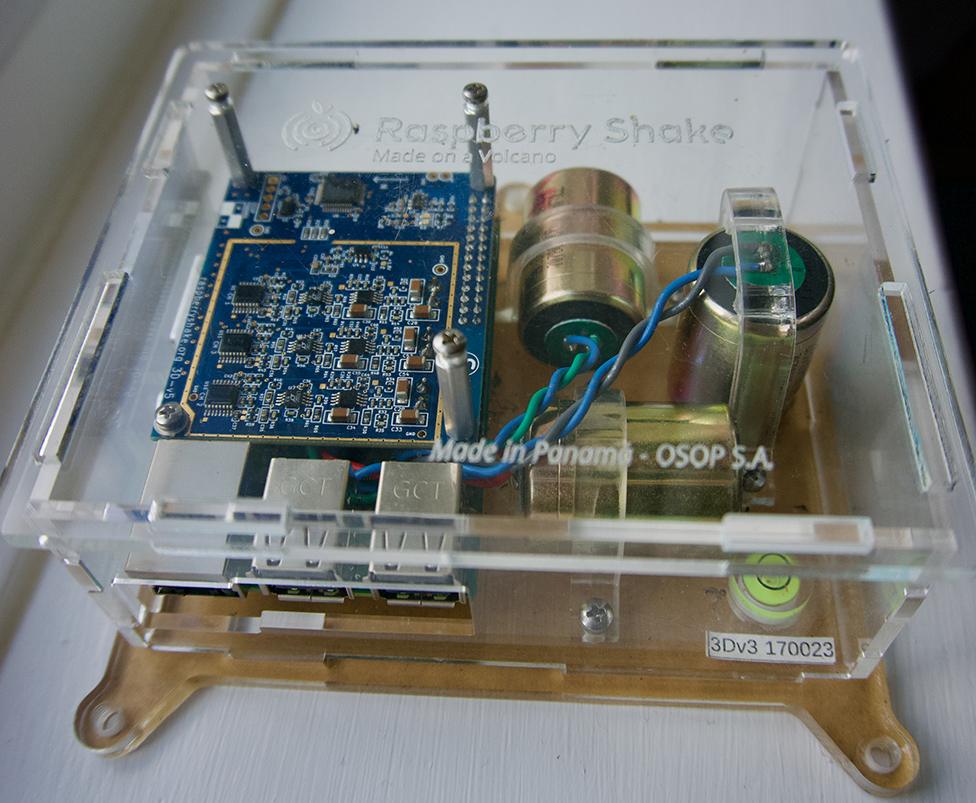Coronavirus lockdown reduces UK ground motions
- Published

Seismologists know the unusual circumstances of lockdown will only exist for a short period

The UK hasn't been shaking as much since it went into Covid lockdown.
Seismometer stations, which are normally used to record earthquakes, have detected a big fall in the ground vibrations linked to human activity.
Scientists from Imperial College London say this background hum is now half what it would usually be.
The unprecedented seismic quiet - a phenomenon mirrored in other countries - could offer a unique opportunity to study the Earth's interior.
"You'd have to go back decades to see noise levels like this," commented Imperial's Dr Stephen Hicks. "You'd often get quiet times in the evenings or at weekends but not continuously, for weeks," he told BBC News.
See how seismic noise dips after Prime Minister Boris Johnson asks people to stay at home
Human activity - cars, lorries, trains, industry, and footfall, etc - turn up in seismometers in a band of frequencies from 5 to 15 Hertz.
Dr Hicks used the data from 127 instruments spread across Britain to map the signal's evolution from mid-January to the present.
He relied in part on the high-fidelity scientific stations operated by the British Geological Survey (BGS) but also on a distributed network of citizen science seismometers that incorporate Raspberry-Pi mini-computers.
The vibrations sensed in both sets of instruments are seen to drop off dramatically after Prime Minister Boris Johnson orders Britain into lockdown on 23 March.
"The reduction in seismic noise should help us to see signals from earthquakes that are normally buried in the noise," said Dr Brian Baptie, the head of seismology at the BGS.
"This might allow us to detect more small earthquakes or see the low-amplitude parts of the ground motions caused by larger earthquakes further away."

AVOIDING CONTACT: The rules on self-isolation and exercise
HOPE AND LOSS: Your coronavirus stories
LOOK-UP TOOL: Check cases in your area
TESTING: Can I get tested for coronavirus?

Scientists around the globe are co-operating to exploit the research potential.
Dr Thomas Lecocq, from the Royal Observatory Belgium, started a community that operates on the Slack communications platform and calls itself "Lockdown Seismology".
The group has more than 85 members in more than 30 different countries.
Dr Lecocq said very low magnitude earthquakes were being investigated, as was volcano activity.
Researchers at Mount Etna in Sicily are trying to listen to the quiet hum of the mountain, hoping to learn something new about its behaviour - something that could be useful in future monitoring.

Dr Hicks' analysis used data from a network of citizen science seismometers
Dr Baptie is cautious, however.
"In theory, [the reduction in seismic noise] could lead to new insights, since much of our understanding about the internal structure of the Earth comes from observations of earthquakes.
"However, this generally relies on observations over long periods of time, whereas the window of time where our detection capability might be improved is likely to be relatively short."
Dr Hicks added: "It's going to be interesting certainly to see how the noise tracks back up and how that varies across the UK. I suspect London sensors became quieter sooner as we went into lockdown, relatively speaking compared to their baseline.
"We'll write a short paper just to say we've got this cool observation and that we've seen this seismic noise reaction moving around the world, starting in China. We'll then discuss what we might be able to do with it in the future."
Jonathan.Amos-INTERNET@bbc.co.uk, external and follow me on Twitter, external.